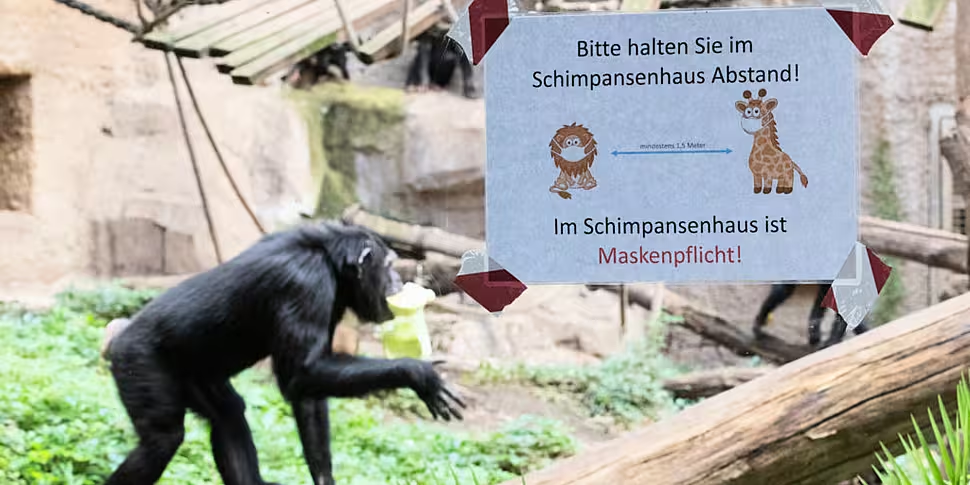A shortage in the supply of monkeys may slow down the development of a COVID-19 vaccine.
Scientists in the United States are particularly concerned, with around 35,000 monkeys used in experiments there every year.
The dearth in supplies is largely because most primates are exported from China but this has been affected by restrictions associated with COVID-19.
Luke O’Neill, Professor of Biochemistry at Trinity College Dublin, said since monkeys are valuable in vaccine developments as they share many similar characteristics to humans.
He told The Pat Kenny Show that a study of 410 different species examined how likely they are to contract COVID-19 by focusing on ACE2 receptor which is the "lock that the virus puts its key into to get inside your lungs".
He said: "By examining how similar ACE2 is between species, we can assess how likely other species are to contract a virus similar to humans."
Prof O'Neill said that it's "a worry" that many primates have an ACE2 almost identical to humans.
He added: "These animals are now listed as at risk of being infected, so it's quite important because many of these animals are on an endangered species list anyway.
"If COVID jumped into an orangutan, there's a strong likelihood that it might die."
However, if a vaccine was found to work on humans, it might similarly be used on animals such as primates.
Prof O'Neill said monkeys are a good model because they're similar to us in many ways.
He said "we have to go through monkeys before humans because the safety issue is always in our minds with vaccines".
Which animals can catch COVID-19? Professor @laoneill111
will be looking at this question and more from 9 on @PatKennyNT #PKNT pic.twitter.com/8bVV1VA6a0— NewstalkFM (@NewstalkFM) September 3, 2020









